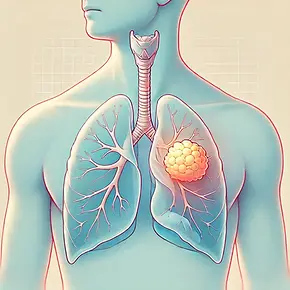T: (408) 993-1500
info@arsmhealth.com
Lung Cancer
Lung cancer prevalence and deaths have reduced in association with reduced smoking. However, it remains to be the leading cause of cancer-related deaths in the USA. In the past, it was often diagnosed late in the course of the disease which resulted in poorer outcomes for people. Over the last 10 years, better diagnostic techniques and treatments have reached more people.
Frequently asked questions
Who should be evaluated?
•Certainly people at risk should be evaluated by a doctor.
•Smokers can have a ten-fold increase in developing lung cancer in their lifetime.
•Smoking is the highest risk for developing lung cancer.
•Other risks include a family history of lung cancer, exposure to asbestos, radon, or radiation.
Are there screening measures to predict the likelihood of lung cancer?
•There are no absolute predictors as to who will have lung cancer in their lifetime.
•However, like colon, breast and prostate cancer; we can screen for characteristic findings of lung cancer in certain higher risk individuals.
How is a patient screened?
•The Provider will do a good clinical history and exam.
•A CT scan of the chest may be required.
If there is a concerning findings on the CT scan, then what is next?
•A Provider may discuss about obtaining a biopsy or removing the abnormality.
•There are different methods to approach a diagnosis which takes into account the patient’s well-being, the abnormality on the CT scan and perhaps other diagnostic imaging.
•To diagnose, your Provider may discuss options such as CT-guided biopsy or bronchoscopy or thoracic surgery.
What are the lung cancer treatment options?
•Treatment will depend on the type and stage of the cancer, in addition to the functional and medical status of the patient.
•Options may include: surgery, chemotherapy, radiation, immunotherapy, targeted therapy or a combination of treatment regimens.
How long does someone with lung cancer live?
•This is a difficult topic and should be discussed with a Provider in person. However, if caught earlier, the survival is much better and therapeutic options can be curative.
•Early diagnosis with an early stage portends a better survival.
What symptoms would someone have with lung cancer?
•Unfortunately, symptoms for lung cancer do not generally develop until it has already advanced into later stages.
•Early stages of lung cancer most often do not present with symptoms and thus screening is important for early diagnosis, treatment and better outcomes.

